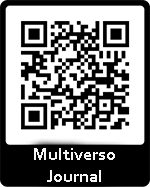Reflections on the notarial regime in Ecuador
DOI:
https://doi.org/10.46502/issn.2792-3681/2022.3.5Keywords:
notarial regime, public faith, Constitution of Ecuador, state empire, legal reflections.Abstract
This research aims to reflect on the notarial regime in Ecuador. To achieve this objective, the manuscript is based on the analytical method, being an investigation of descriptive scope and documentary type. The main sources are the Constitution of Ecuadorand a set of doctrine and jurisprudence about the selected topic. The results obtained show the importance of having certainty in the documents and declarations made, which is obtained through the attribution born from the state empire and the corresponding sovereignty; In this sense, Ecuador, as a State that guarantees people's rights, resorts to the granting of powers to give public faith, specifically, the task is entrusted to notaries. From the conclusions it can be highlighted that in Ecuador notaries have a partial decentralization because they have workers under their charge, but each of their activities is limited to the orders and provisions issued by the Council of the Judiciary and the legal system in general.
References
Alvarado Contreras, S. (2019). El notario público, la naturaleza de su función y los alcances legales de sus actuaciones. Ecos Sociales. Edición especial. Universidad Juárez Autónoma de Tabasco. Obtenido de: https://revistas.ujat.mx/index.php/ecosoc/article/view/3668, fecha de consulta 04-02-2022.
Asamblea Nacional Constituyente. (2008). Constitución del Ecuador. Quito, Ecuador. Registro Oficial número 449, de fecha 20 de octubre de 2008.
Cárdenas, E. (2018). El notario como autor y responsable del documento notarial. Ensayo, presentado en la postulación para la Universidad Mundial del Notariado, Roma 2018. Obtenido de: http://www.fen.com.ec/website/Documentos/articulos_especializados/el_notario_responsable_del_documento_notarial_FEN.pdf, fecha de consulta 05-02-2022.
Castro Pizarro, J. M., Masache Romero, C. M., & Durán Ocampo, A. R. (2019). La aplicación del derecho público en el Ecuador. Universidad y Sociedad, 11(4), 350-360. Obtenido de https://rus.ucf.edu.cu/index.php/rus/article/view/1312.
Corte Constitucional. (2015). Sentencia N° 016-15-SEP-CC. Acción extraordinaria de protección. Expediente 0885-11-EP Obtenido de https://portal.corteconstitucional.gob.ec/FichaRelatoria.aspx?numdocumento=016-15-SEP-CC, fecha de consulta 05-02-2022.
Couture, E. (1954). El concepto de fe pública. Introducción al estudio del Derecho Notarial. Segunda Edición. Montevideo, Uruguay: Biblioteca de Publicaciones Oficiales de la Facultad de Derecho y Ciencias Sociales de la Universidad de Montevideo.
Gutierrez Cabas, W. (2021). El notario de fe pública y el fortalecimiento de la carrera notarial. Revista Jurídica Derecho, 10(14), 116-132. Obtenido de http://www.scielo.org.bo/scielo.php?pid=S2413-28102021000100007&script=sci_arttext, fecha de consulta 04-02-2022.
Lucas-Baque, S., & Albert-Márquez, J. (2019). Los principios notariales como aporte a la justicia preventiva y a la seguridad jurídica. Polo del Conocimiento, 4 (11), 41-66. DOI: 10.23857/pc.v4i11.1174.
Meneses Pacheco, C. (2018). Significado de la fe pública en la prueba por medio de documentos públicos. Revista de Derecho Universidad Católica del Norte Sección: Estudios, 25(1), 181-230. Obtenido de https://revistaderecho.ucn.cl/index.php/revista-derecho/article/view/3001, fecha de consulta 08-02-2022.
Pleno de la Comisión Legislativa y de Fiscalización. (2009). Código Orgánico de la Función Judicial. Ley 0. Quito, Ecuador. Registro Oficial Suplemento 544, de fecha 09 de marzo de 2009. Última modificación: 22 de mayo de 2015.
Presidente Interino. (1966). Ley Notarial. Decreto Supremo 1404. Quito, Ecuador. Registro Oficial 158, de fecha 11 de noviembre de 1966. Última modificación: 08 de diciembre de 2020.
Unión Internacional del Notariado. (2005). Principios fundamentales del sistema de notariado de tipo latino. Documento Aprobado por la Asamblea de Notarios el 08-11-2005 celebrada en Roma, Italia. Obtenido de https://www.uinl.org/principio-fundamentales, fecha de consulta 04-02-2022.
Published
How to Cite
Issue
Section
License
Copyright (c) 2022 Alcida Liliana López Véliz, Jorge Isaac Calle García

This work is licensed under a Creative Commons Attribution 4.0 International License.
The authors who publish in this journal agree to the following terms:
The authors retain copyright and guarantee the journal the right to be the first publication where the article is presented, which is published under a Creative Commons Attribution License, which allows others to share the work prior to acknowledgment of the authorship of the article. work and initial publication in this journal.
Authors may separately enter into additional agreements for non-exclusive distribution of the version of the work published in the journal (for example, placing it in an institutional repository or publishing it in a book), with an acknowledgment of its initial publication in this journal.



















